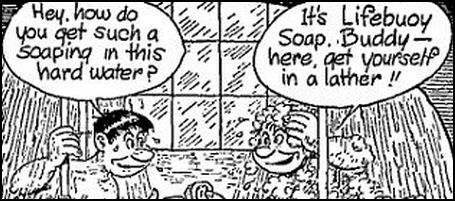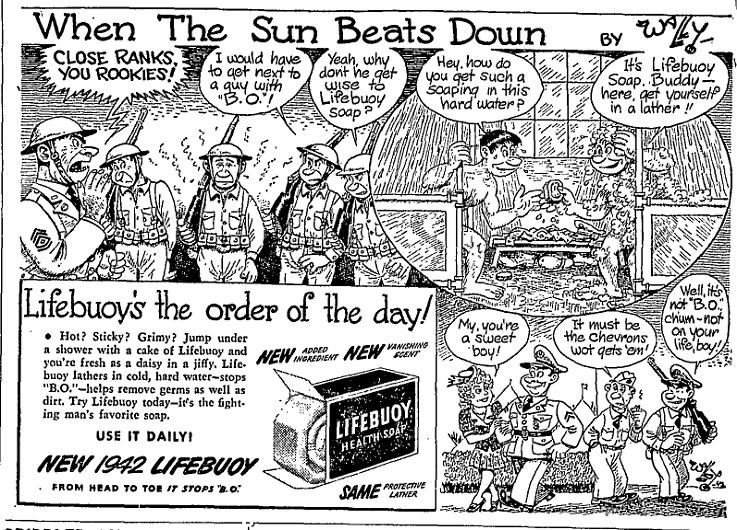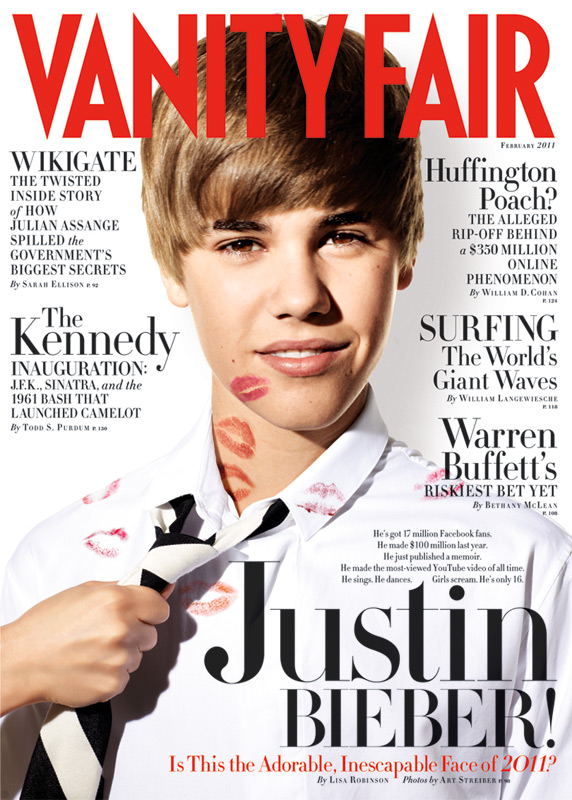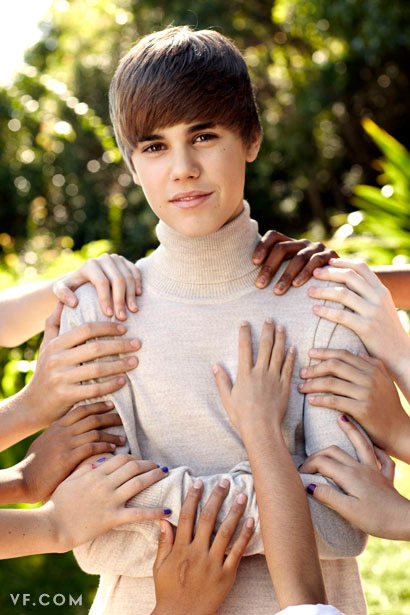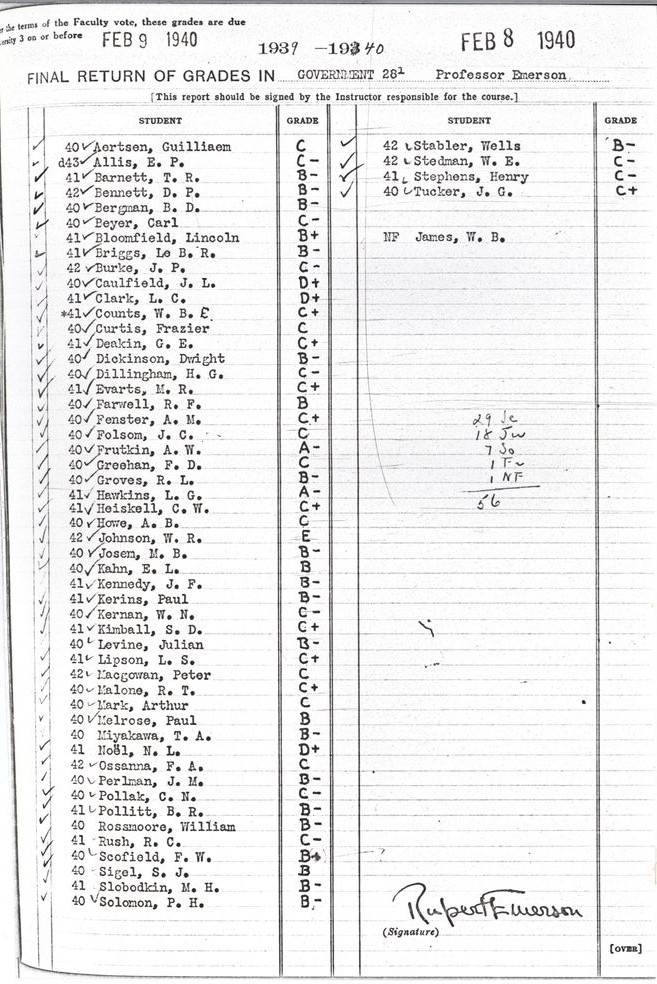As a contributor to my local public radio station, I receive their magazine, Desert Companion. I don’t find it particularly compelling, because the intended audience for many of the articles must shop at a higher price point than I do; a story about Tom Ford opening a new boutique is entirely irrelevant to me.
Given the economic crisis facing Las Vegas (as of December 2010, our unemployment rate was 14.9%), I was particularly struck by the class assumptions in an article in the January 2011 issue. It discussed the opening of a new H&M store and provides rules for getting the most out of shopping there:
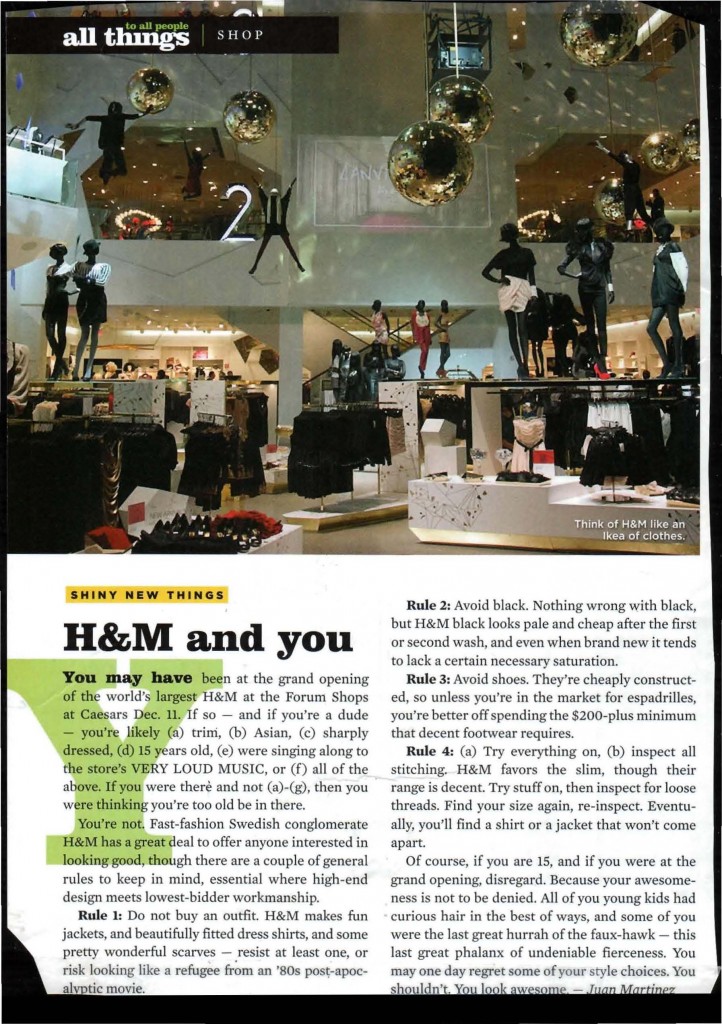
Notice Rule 3:

Well, perhaps. I don’t personally own any $200+ shoes, but I’ll accept the general idea that at least up to a point, when you pay more, you may get higher quality, and insofar as that means they last longer, it may be an overall better investment per dollar, long-term. I’m just going to set aside the fact that you may also be paying mainly for a brand name, not significantly better construction (in terms of being more comfortable or lasting longer).
Even if the premise is entirely true, the breeziness of saying you should go spend a minimum of $200 if you want “decent footwear” (not truly amazing shoes, just decent ones) is an example of the type of class assumptions that make the poor or working class invisible while the experiences or opportunities of the upper middle class (and above) are presented as normal . You are, of course, only “better off” spending $200+ on a single pair of shoes if you have an extra $200 that is entirely unnecessary for your basic needs and that you don’t need to put in savings for an emergency or retirement.
Further, advice such as that given here present this as simply a matter of being economically smart, rather than as a class issue: unless you’re looking for the type of trendy shoes that you’ll only want to wear briefly anyway, you shouldn’t waste your time at H&M. Similarly, in grad school I was once told I was “dumb” to rent rather than buy a house, in a town where they cost $150,000+. In both cases, the opportunities provided by economic advantage are perceived as economic common sense, obvious choices for anyone who is smart and has decent taste. Combined with the invisibility of people who can’t afford to spend that much money, accepting these class assumptions allows us to gaze disdainfully at people in “cheap” shoes, confident that they, too, are simply “cheap.”
For another example, see our post on TheLadders.com, where non-rich folk just mess things up for the worthy.
